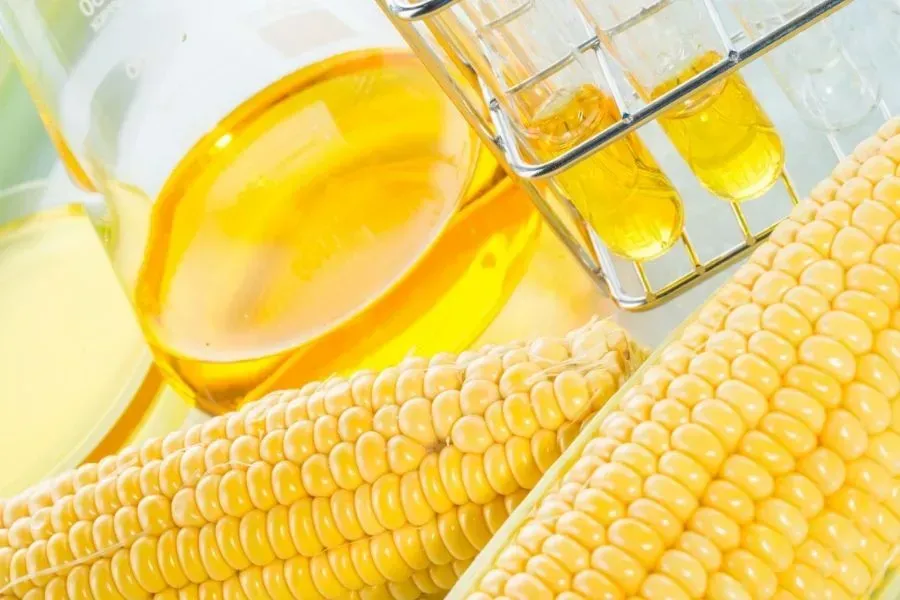High Fructose Corn Syrup vs Cane Sugar
What are the real benefits of cutting out HFCS in favor of Cane Sugar?

There is a lot in the news lately on this topic. It's surprising to see information being shared that seems to minimize the health concerns with High Fructose Corn Syrup (HFCS). It reinforces my belief that too often public health statements are generated by Corporations, not physicians. So as an independent physician who doesn't have to run things through a PR department, here are my thoughts.
I believe High Fructose Corn Syrup (HFCS) brings meaningful health risks so any replacement is an improvement. I'll start with an oversimplified explanation. For anyone who wants to suffer through some basic (and possibly questionable) biochemistry, I'll go into a little more depth afterwards.
Disclaimer: This is based on studies that don't all have consensus agreement and I haven't opened an Organic Chemistry book in 18 years.
Glucose and Fructose are found in fruit, vegetables, and grasses (Fructus means fruit in Latin). In natural food sources they contain fiber and are bound chemically to other sugars. Fun fact: Corn is technically a fruit! Sugars in natural foods take more work to digest, so they are more slowly absorbed into the blood stream. Cane syrup does not have fiber, but it does have chemical bonds that must be broken down. HFCS has neither fiber nor chemical bonds between sugars so it is more rapidly absorbed into the bloodstream.
Glucose can be used directly by our cells for energy. We need Glucose to live. When we ingest a lot of Glucose quickly, our body can't metabolize all of it and the excess gets converted to fat.
Fructose on the other hand can't be used by our cells for energy. It has to be converted to Glucose. This is an important distinction. Unconverted Fructose and Fructose that has been converted to Glucose in excess of metabolic needs end up in the liver and is converted to fat. When we exceed our metabolic requirements with any sugar we will cause fat accumulation, but to a greater extent with Fructose. HFCS has a higher percentage of Fructose than Cane Syrup.
So, HFCS has a higher concentration of Fructose, no fiber, and no chemical bonds to break down so it is absorbed quickly into the bloodstream which can lead to higher blood sugar levels and fat accumulation.
For those who are tired of looking at Coldplay memes I'll go a little deeper into the theory. Read on at your own peril!

Cane syrup from sugar cane contains Sucrose which breaks down into equal parts of Glucose and Fructose.
Corn Starch on the other hand actually contains no Fructose whatsoever. A chemical process converts some Glucose into Fructose at various ratios. The one most commonly used in soda is 55% Fructose and 45% Glucose.
It is the higher Fructose content in HFCS that I believe increases the metabolic risk in a number of ways. It's not as simple as just having a higher Fructose content but also the increased ratio and how it changes our metabolism of sugars. It's not just the volume, it's the rapidity of absorption that overwhelms the conversion capacity.
The conversion of Fructose to Glucose initially begins in the small intestine. However, the small intestine has a limited capacity for conversion. Any excess Fructose goes to the liver. So, excess Glucose goes to the liver to be stored as fat, but all Fructose and any Fructose that was converted to excess Glucose in the small intestine end up in the liver as fat. Starting to see the issue with Fructose balance?
So how does any of this apply to Coke?
When we eat fruit we have to break down the fibrous content and chemical bonds. When we drink a coke with HFCS we ingest something with an artificially elevated level of Fructose, with no fiber and no chemical bond to Glucose. "INJECT IT INTO MY VEINS!!!" takes on a whole new meaning.
Cane syrup on the other hand is primarily Sucrose, which is just equal parts of Glucose and Fructose bound together. That bond has to be broken during digestion which slows down absorption. The same pathways for Fructose and Glucose after absorption apply. EXCEPT!! There is a theory, not universally accepted, that the metabolic pathways are altered when Glucose and Fructose are not in a 1:1 ratio. In that theory, Sucrose, being equal parts Glucose and Fructose, is metabolized better than HFCS with a ratio of 55:45.
So is Cane Syrup in Coke a health elixir that will cure everything? Not even close. It is still not healthy in excess. But is it better than HFCS? Most likely.








